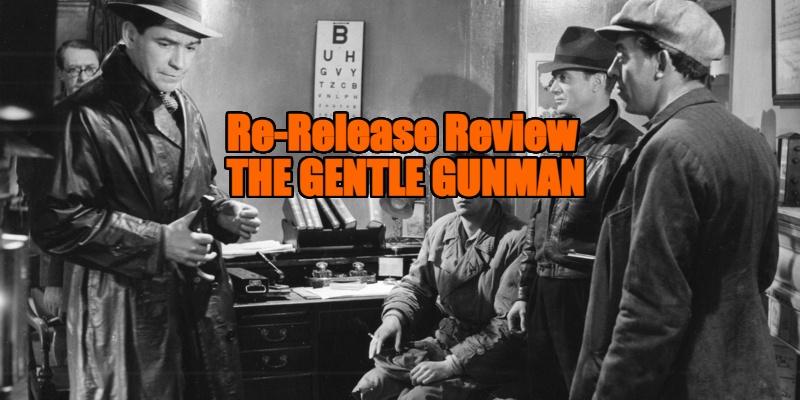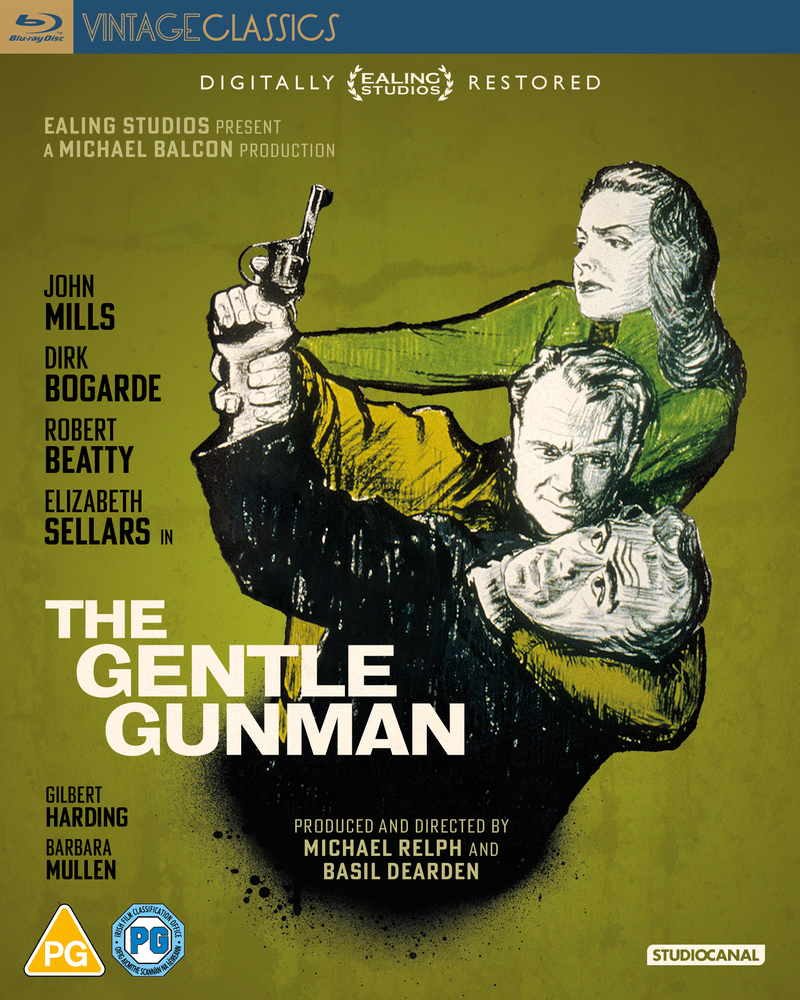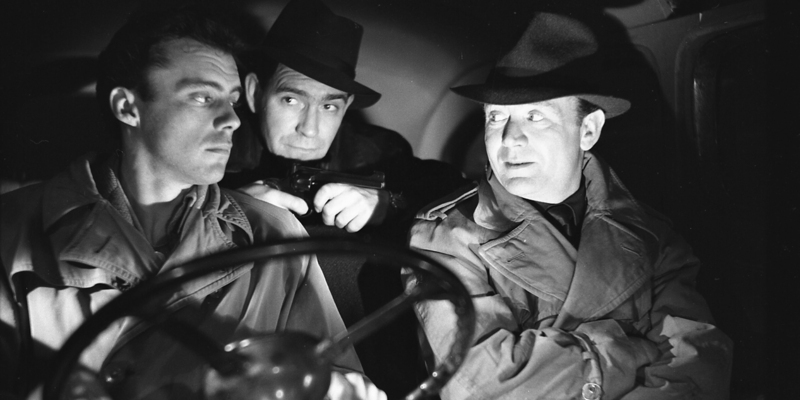
Review by
Eric Hillis
Directed by: Basil Dearden
Starring: John Mills, Dirk Bogarde, Robert Beatty, Elizabeth Sellars

As soon as The Troubles kicked off in the late 1960s, the British media
took an almost blanket approach in denying representation of the Irish
side of the conflict. Sinn Fein, the political wing of the IRA, were
forbidden from appearing in media, songs that critiqued Britain's
involvement in Ireland were banned from the radio and it was near
impossible to get funding for any movies that displayed sympathy for the
Irish cause. Just a couple of decades earlier however, the British media
viewed Irish Republicanism as almost something quaint, even romantic. A
movie like Basil Dearden's 1952 thriller The Gentle Gunman would never
have gotten made 20 years later.

Even its title would likely have ruffled feathers in the 1970s. The
gentle gunman is young IRA fighter Matthew (Dirk Bogarde, barely
attempting an Irish accent), who in 1941 is sent to London to plant a
bomb in the underground. The plan is not to cause any harm to civilians,
but when children start playing near where Matthew leaves the suitcase
containing the device, his older brother Terry (John Mills, making even
less effort in the accent department) is forced to intervene, tossing
the bomb down the subway track where it explodes without causing
damage.
When the two men who planned the bombing - Connolly (Liam Redmond) and
Patsy (Jack MacGowran) - are arrested, Matthew flees back to Ireland,
while Terry, who is viewed as a traitor, remains in London. When Terry
hears of a plan to break Connolly and Patsy free from the ship bringing
them to prison in Northern Ireland, he heads to Ireland and attempts to
stop Matthew from becoming involved.

The Gentle Gunman takes an anti-violence stance, yet at the same time
it refuses to take sides in the conflict, quite daring considering it
was made for a British audience. A pair of doctors, the Irish Brannigan
(Joseph Tomelty) and his English counterpart Truethome (Gilbert
Harding), act as something of a Greek chorus, debating both sides of the
conflict while playing chess. They later find themselves caught up in
the very conflict they've been arguing over when an injured IRA soldier
arrives at their door. Neither Brannigan nor Truethome best one another,
but the portrayal of the English doctor as pompous and arrogant suggests
a surprising level of sympathy for the Irish side of the affair from the
filmmakers.
There's something hypocritical about the film's constant sermonising
about how violence isn't the answer, as Terry finds himself having to
wield a gun in order to make anyone listen to him. The words of its
script might make an argument for pacifism, but The Gentle Gunman's
actions display quite the opposite and ironically backs up the need for
the threat of violence.

Bogarde and Mills are badly miscast. They're both two old for the
roles, and certainly too English. Surrounding them with actual Irish
actors only makes them stand out all the more, and there are moments
where we forget which side they're meant to be representing. Frequent
comic interludes are admittedly quite witty, but serve to diffuse the
tension.
Dearden does a reliable job with the film's few suspense sequences, but
regardless of our views on this conflict, we're not really given anyone
to care about. Bogarde's Matthew is a paper thin stereotype of a young
man exploited by terrorists too cowardly to do their own dirty work, but
we never feel like he has any sort of a mind of his own, never mind any
self-determination or perspective on the conflict. His gunman isn't so
much gentle as obtuse.

